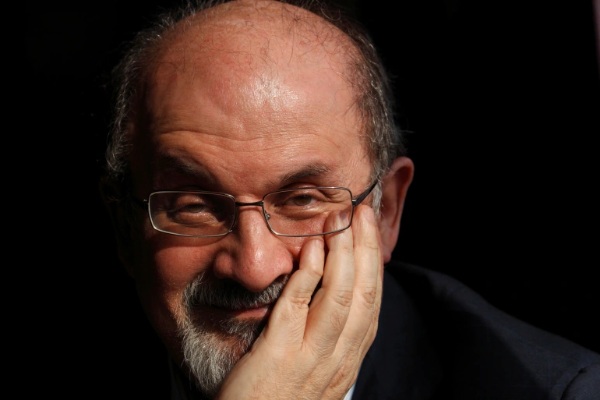Salman Rushdie lost sight in one eye and the use of one hand due to an attack on stage at a literary event in western New York in August.
Andrew Wylie, his agent, said Sunday that Rushdie, 75, was the victim of a “brutal” attack that left him with “deep” wounds.
“He’s lost the sight of one eye … He had three serious wounds in his neck. One hand is incapacitated because the nerves in his arm were cut. And he has about 15 more wounds in his chest and torso,” Wylie said.
The agent said he couldn’t disclose if Rushdie was still in the hospital or where he was.
“He’s going to live … That’s the important thing,” Wylie said.
Rushdie, who had received multiple death threats following the release of his novel The Satanic Verses, was assassinated on August 12, just as he was set to deliver a lecture at the Chautauqua Institution in New York state.
According to his agent, the writer was brought to the hospital after suffering significant injuries in the attack, including nerve damage in his arm, lesions to his liver, and the potential loss of an eye.
The attack happened 33 years after Iran’s Supreme Leader, Ayatollah Ruhollah Khomeini, issued a fatwa, or religious edict, ordering Muslims to execute Rushdie in response to the publishing of The Satanic Verses.
Some Muslims considered parts concerning the Prophet Muhammad in the novel to be disrespectful.
Rushdie, who was born in India to a Muslim Kashmiri family, spent nine years in hiding when Khomeini issued his fatwa.
While Iran’s reformist administration of President Mohammad Khatami distanced itself from the fatwa in the late 1990s, the multimillion-dollar prize on Rushdie’s head continued to rise, and the fatwa was never withdrawn.
Supreme Leader Ayatollah Ali Khamenei, Khomeini’s successor, was barred from Twitter in 2019 for claiming the fatwa against Rushdie was “irrevocable.”
Iran has denied any connection in the August attack.
Hadi Matar, 24, the man accused of stabbing the writer, has pleaded not guilty to second-degree attempted murder and assault charges.
He is being jailed without bail in a prison in western New York.
The attack was along the lines of what Rushdie and his agent have thought was the “principal danger … a random person coming out of nowhere and attacking,” Wylie said.

